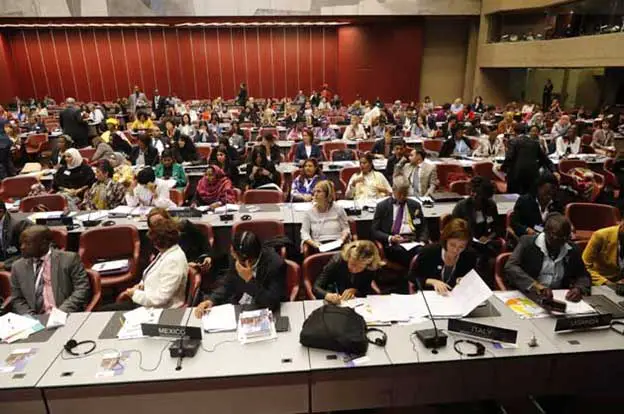For the first time in history, according to a new report by the Inter-Parliamentary Union (IPU), not a single functioning parliament in the world is “all-male”, but achieving parity is a little further away: 80 years away from gender balance among legislators if the current pace continues.
Is the increase in the number of women in parliaments a singular achievement for gender empowerment, or is it the result of mandatory legislative quotas for women’s representation in the world’s parliaments?
According to the latest IPU report, Women in Parliaments 2022, women’s participation in parliaments has never been as diverse and representative as it is today in many countries.
The results are based on the 47 countries that held elections in 2022. In those elections, women held an average of 25.8% of the seats up for election or appointment. This represents an increase of 2.3 percentage points compared to previous renewals in the same legislative chambers.
In Brazil, a record 4829 self-identified black women ran out of 26,778 candidates; in the United States, a record number of women of colour (263) ran in the midterm elections.
LGBTIQ+ representation in Colombia tripled from two to six members of Congress; and in France, 32 minority women candidates were elected to the new National Assembly, an all-time high of 5.8% of the total.
According to the report, legislative quotas were again a decisive factor in the increase in women’s representation.
Thomas Fitzsimons, IPU Director of Communications, told IPS that there are many factors behind the success of countries that have made progress.
For example, he noted, technological and operational transformations, due in large part to the covid-19 pandemic, have increased the potential for parliaments to become more gender-sensitive and family-friendly.
“The influence of gender issues on election results, with increased consciousness about gender discrimination and gender-based violence, as well as alliances with other social movements, also helped to achieve good results for women in some of the parliamentary elections,” he said.
But, he added, “if we had to choose one main factor, it would be the legislated quotas. Legislative quotas enshrined in the constitution and/or electoral laws require that a minimum number of candidates be women (or of the under-represented sex).
Chambers with legislated quotas or combined with voluntary party quotas produced a significantly higher proportion of women than those without quotas in the 2022 elections, 30.9% versus 21.2%.
“As for the future, we have to accelerate the momentum, which is still too slow. At the current rate of growth, it will be another 80 years before we reach parity,” Fitzsimons said.
Antonia Kirkland, global director of Legal Equality and Access to Justice at Equality Now, told IPS that it is encouraging to see that the IPU data shows that “there are more women in political decision-making positions globally than ever before, and that there has been an overall increase in the number of women in government and legislative positions”.
“IPU data clearly shows that quotas for women’s representation have had a major positive impact. Countries with quotas have enjoyed a 9.7% increase of women in parliaments compared to countries without quotas,” she said.
However, it is regrettable that women remain so under-represented at all levels of political decision-making, accounting for only 9.8% of heads of government and just over a quarter of MPs.
It is also of great concern, Kirkland argued, that gender parity in parliaments is at least 80 years away if we continue at the current rate.
According to the World Bank, only 14 countries have full legal equality between women and men, and UN Women estimates that it will take another 286 years to close legal protection gaps, so duty bearers must create a safe and enabling environment for women to participate in politics that fosters greater legal equality.
With that reality, Kirkland believes it is clear “that more needs to be done to increase women’s political representation by understanding and removing barriers to women’s participation in the public sphere and decision-making”.
In her view, “to accelerate gender parity in parliaments, we first need to end gender discriminatory laws in all ambits of life that prevent women from engaging in politics”.
In addition, political parties must highlight the importance and benefits of gender diversity, and launch initiatives to involve women in politics at all stages and within all branches of the political ambit.






